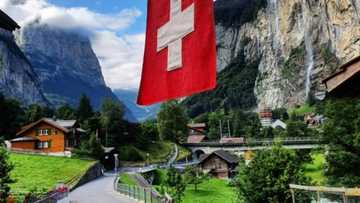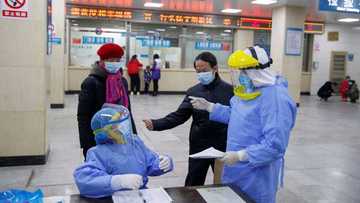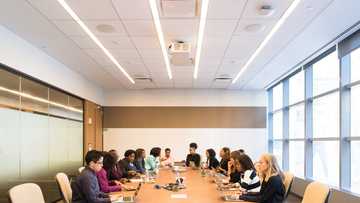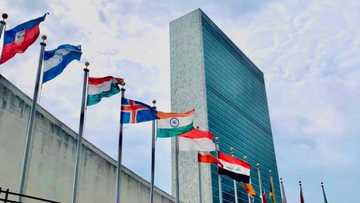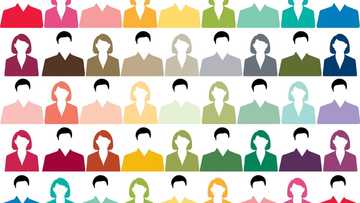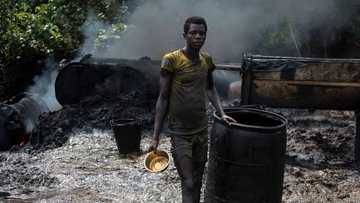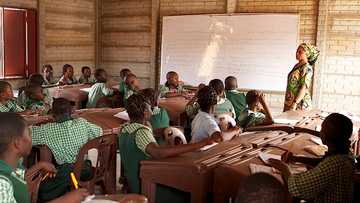What are the 10 major political problems in Nigeria today?
Even though Nigeria is considered an African country that is developing quite fast, it still does not mean that our native land is entirely devoid of all problems. In this article, you will read about the major political problems in Nigeria and the possible ways to solve them.
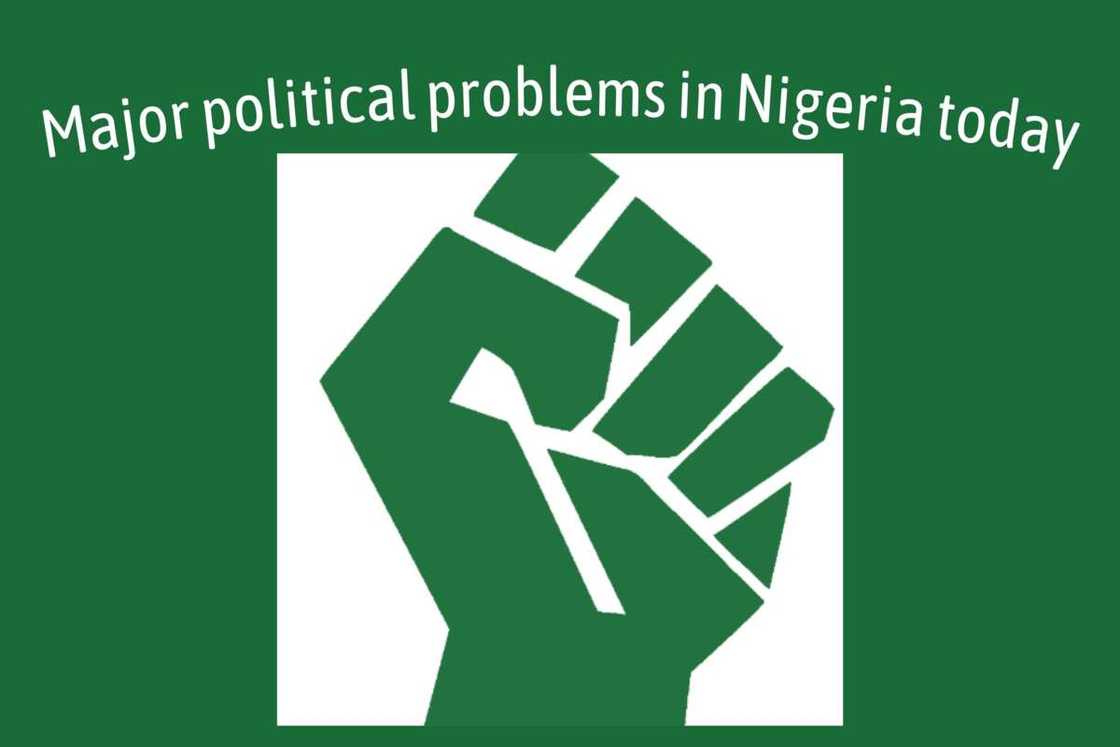
Source: UGC
What are the political problems in Nigeria and solutions? There are a lot of issues in the political and social arena. People have been unaware of possible solutions for many years, and the situation remains the same. Minor improvements are made every day to improve the life of Nigerians, but there are still so many things that should be considered.
List of political problems in Nigeria
Unfortunately, the diversity of Nigerian politics is not always helping because every politician has different opinions on what should be done to restore the country. Below are the major causes of political problems in Nigeria.
1. Corruption
It is not news to everyone that the country has been notorious as one of the most corrupt countries in the world. Most Nigerian politicians are known for their corrupt deeds, as the statistics say that 70% of corruption practices come from this branch of society.
Governmental officials often put the funds that belong to the public in foreign bank accounts. Private citizens are known to help out in the process of money laundering. On top of everything else, the politicians hide billions of naira under different names for society to stay unaware of their money-stealing practices.
Corruption also blossoms in the law and police force, so the citizens no longer trust these branches with their safety. This problem is one of the foundations of the general crisis in the country.
This is because corruption can leak into various settings and threaten all political institutions, economic sectors, and other spheres of life. And the government, which is supposed to protect the citizens and be the highest branch of society that solves all the problems, is the most involved in the existence of corruption.
2. Tribalism
Tribalism is one of the major political issues in Nigeria in 2022. This results in political differences, civil wars, human losses, and blindness during elections, which means that the citizens vote not because of the political capabilities of the candidate, but tribalism.
This problem has always been the root of all the other issues in the country, and nowadays, people are tribally biased toward or against people from the same or different backgrounds.
It often leads to inter-tribal conflicts and deaths because people disagree on religion, politics, culture, or anything else. Tribalism is also a significant problem in the political sector, as people mostly vote based on their tribes.
When a person commits a mistake, it is forgiven by people of their tribe but viewed as the worst crime by people from another. This psychology is divisive and does nothing good for the Nigerian people.
3. Economic downturn
The country's economic position has drastically gotten worse. The country's population is stuffing greatly due to the decline in annual revenues.
As a result, the wages of workers are no longer adequate to buy goods from markets. It seriously endangers the lives of many individuals, which is one of the causes for which numerous employees are asking for salary increases.
4. Oil and gas industry
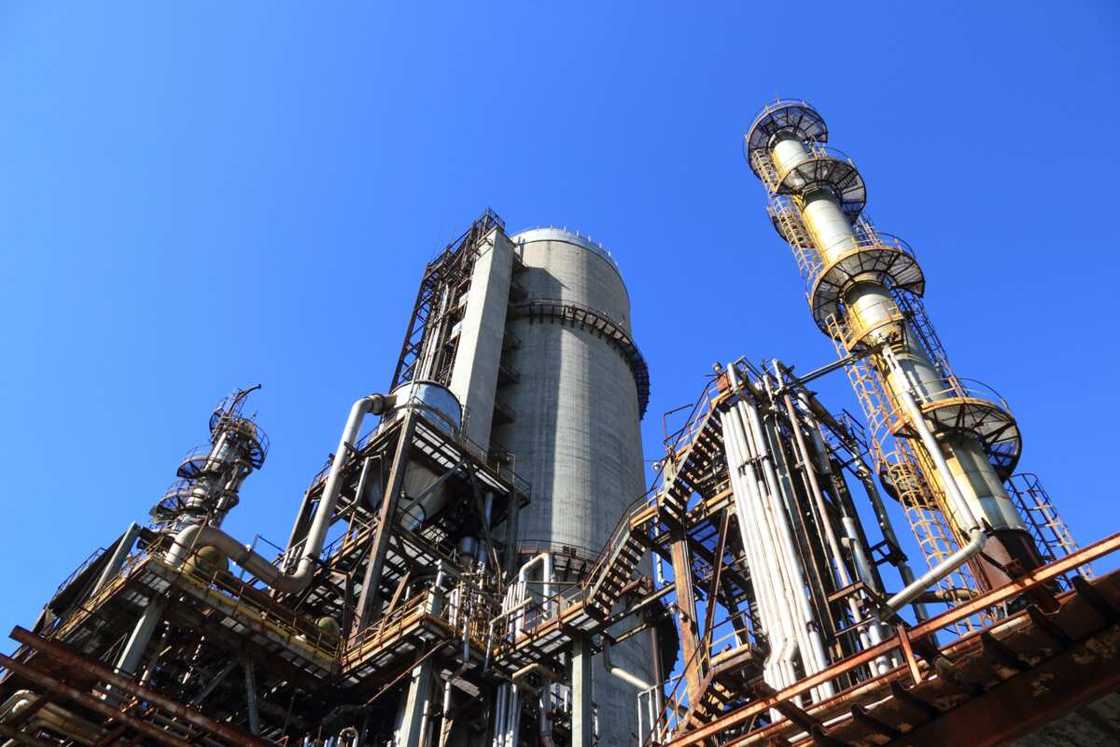
Source: UGC
Even though the industry sector in Nigeria was always known for its numerous resources, there are still issues connected with that, which contribute to the overall political crisis.
This is not a far-fetched problem, and it can be easily linked to the political life of Nigeria. It is suspected that many politicians gain huge profits from oil and gas. For instance, there was a subsidy removal story, which resulted in the national scarcity of fuel.
5. Boko Haram terrorist group
The state's neglect by the officially ranked figures left the country with another problem – the terrorist group Boko Haram attacks. The Boko Haram terrorists decline everything western and want their ideology to thrive.
The actions of this violent group are such a problem to Nigerian society due to the neglect and mismanagement of the country by the leaders.
Many studies that were carried out on the Boko Haram activity in the country suggest that their rise is a consequence of state leaders neglecting the current state of events and depriving a big part of the population.
Many other factors contribute to the terrorist movement in Nigeria, including injustices, poverty, class inequality, the failure of social services and more.
6. God-fatherism
What is God-fatherism? This is a political sponsorship based on manipulation and imposing someone's agenda on other politicians.
Many people who venture into politics would look for their "godfathers" as the first move in their political careers. This is a term for looking for a person who would be your career patron and push you towards acquiring a higher political position.
Many politicians seem to be forgetting that Nigeria is a democratic state, and the government should depend entirely on the choices of Nigerian citizens, which they have a chance to make through independent elections.
The paradox here is that the "godfathers" usually do not share God's core values and follow the ideology of mostly corrupt political parties. Unfortunately, this phenomenon has been dividing the country and becoming a toxic part of its political life.
7. Nigerian youth and their political inactivity
In general, young people are very active and dynamic and participate in basically every field of life, except politics. Unfortunately, their voices are often overlooked and not taken seriously.
They also feel it is not worth starting a political career and exposing themselves to all the dangers and threats it can bring. There are plenty of other problems with young people, aside from their lack of political awareness and activity.
The unemployment rate among the youth is extremely high, and the government's general attitude toward giving youngsters actual jobs shows that this trend will continue in the near future.
The biggest question nowadays is: when will the older people let the youth lead? And when will the young people also wake up and realise their voices can be heard? This would probably change things for the better if youngsters were not afraid to participate in the political life of Nigeria.
8. The Nigerian media
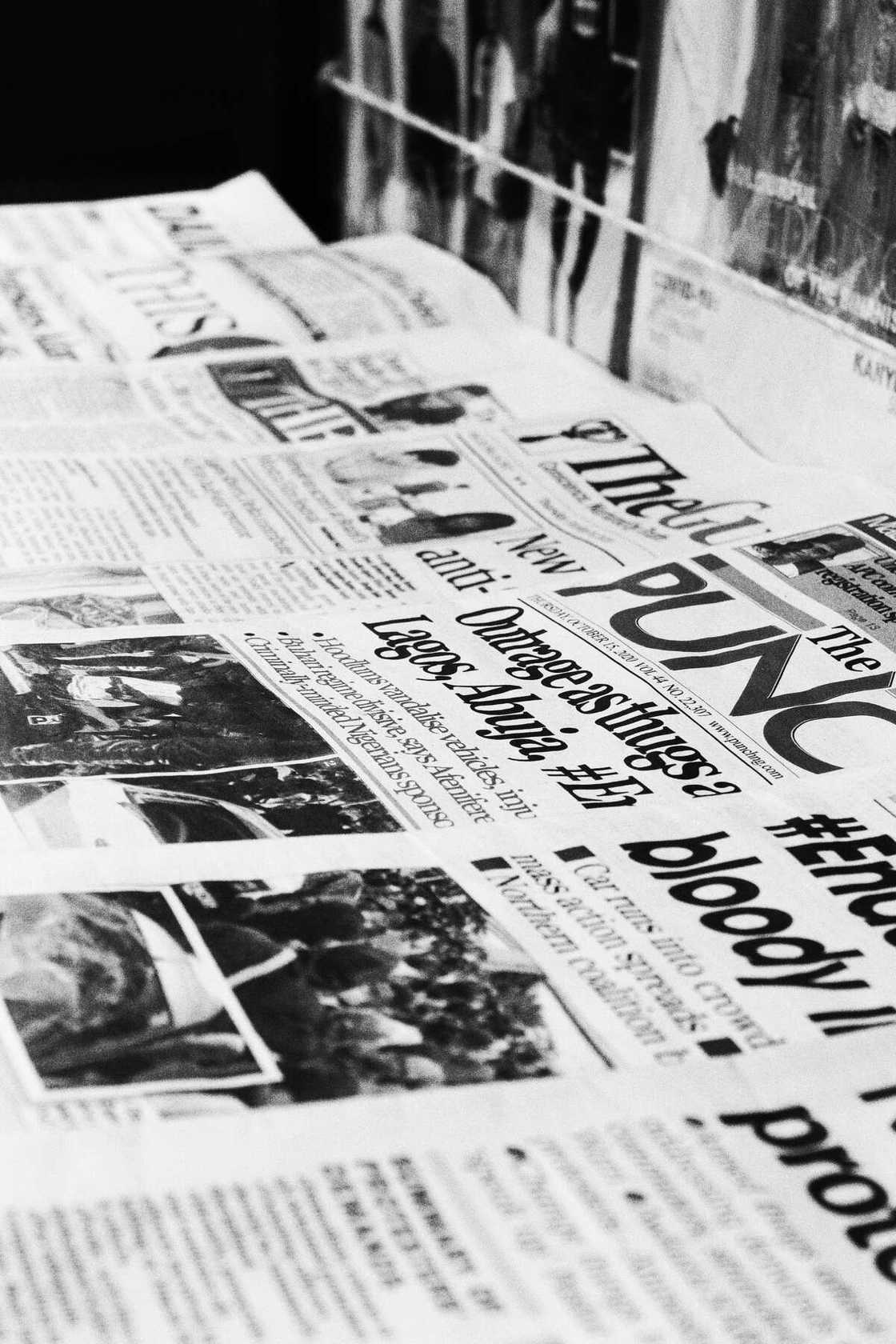
Source: UGC
As you may know, the media is a large part of a democratic society. Therefore, the primary obligation of the journalists who work for these media outlets is to praise these leaders and show their opponents in a bad light.
This distorts the accuracy of all the political news that Nigerians read daily. As a result, all the important details are overlooked, and people must process the generalised information and make their own conclusions from something that is not particularly true.
Another major issue is that most political leaders, or their representatives, pay the journalists a good amount of money to write articles that cover up all the negative things they did and represent them only in a positive light.
9. Religions
Nigeria is one of those countries where different religions are spread all over the state. It is quite natural, considering how Nigeria consists of so many different cultures and is the most populated country on the African continent.
There are various religions, but some of the most widespread are Christianity and Islam, as well as the African traditional religion.
The issue with religion is that people of the major religion fight each other for power, and people vote for the candidates based on their religion instead of voting for their strategy and political capabilities.
This divides people and makes them feel separated from each other because of their religious differences, instead of being a part of the same country and having the same core values.
10. Nigerian citizens
Many Nigerian citizens gave up on the country's political life. They do not participate in any electoral processes and usually have no opinions about the country's candidates or general political conditions.
Quite often, during the elections, people travel to their native towns instead of voting and refuse to participate in the national electoral process.
To this day, many Nigerians meet all the eligibility criteria for voting but do not desire to participate directly. This is because they think that their vote will not matter and leave it to the others who are more aware of the current political state.
These similar behaviours are not helping the development of Nigeria, as so many people refuse for their voices and concerns to be heard for various reasons.
Solutions to political problems in Nigeria
Below are some of the solutions to the current issues in Nigeria in 2022.
- Use technology and social media to engage citizens in current anti-corruption problems. The increase of young people on social media demonstrates its potential for inspiring debate and encouraging participation in the fight against corruption.
- Regardless of colour or tribal heritage, all Nigerians must accept diversity and collaborate.
- The country's government must diversify the economy and make agriculture the mainstay of the economy. It should also lift the import ban on certain critical commodities.
- Ensure that openness, good governance, and accountability are codified in the administration of Nigeria's petroleum resources.
- Adequate security and engagement with terrorists to address issues related to the source of terrorism are the best approaches to terrorism, and the government must emphasise the advantages of the people.
- The electorate should be adequately educated to understand that no family has a monopoly on power and that power does not belong to a single family.
- Educate and create excellent work opportunities for the next generation. This will aid in developing the country's economy and reducing the high unemployment rate.
- The Nigerian Union of Journalists must remember their duty to maintain journalistic standards. Among these are common requirements for media proprietors and proper information distribution to society.
- To reduce religious violence, the government should make education cheap for everybody and make efforts to employ more people. Furthermore, the government should refrain from interfering in religious matters, as this might lead to social discontent, instability, and divisiveness.
- Encourage and educate all Nigerians on voting and choosing their leaders. They should be educated on the Nigerian political system, the value of choosing excellent leaders, and the freedom that comes with it.
How can we improve Nigeria?
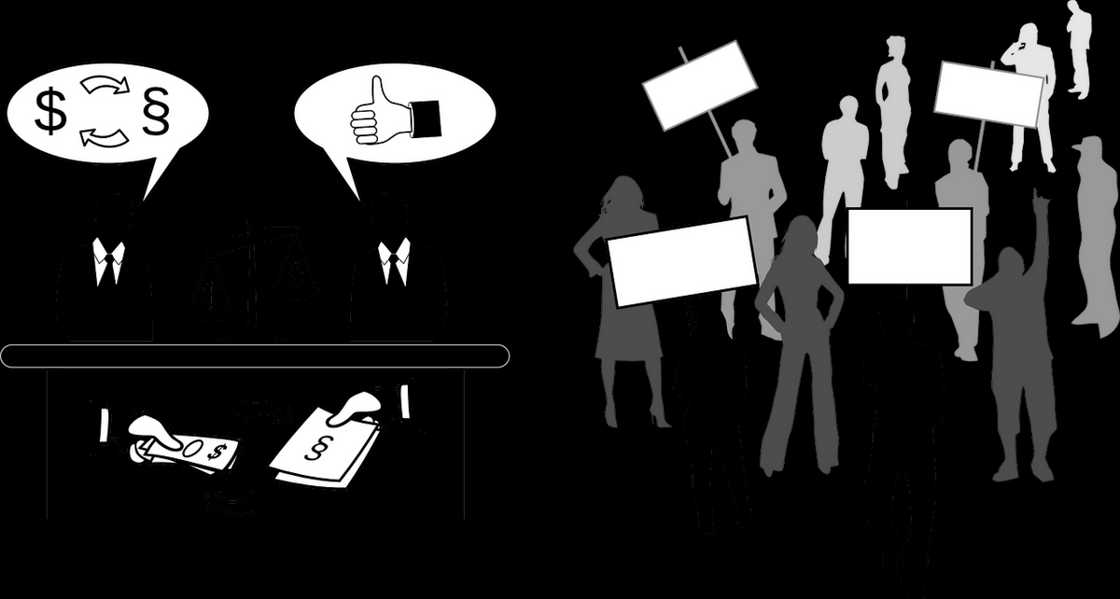
Source: UGC
Nigeria can be improved by increasing policy transparency and predictability, improving basic education financing, monitoring the impact of conflict on household welfare to protect the poor and vulnerable, and leveraging digital technologies to diversify the economy and create jobs for young workers.
What are the examples of socio-political problems in Nigeria?
Some of the primary sociopolitical problems include corruption, poverty, unemployment, insecurity, politics, and poor governance.
How can corruption in Nigeria be curbed?
Providing incentives for the general public to report examples of corruption, strengthening anti-corruption authorities, and increasing openness are some viable answers.
What are the problems of political parties in Nigeria today?
Corruption, tribalism, and religious conflicts are among political parties' major problems. These parties are characterised by high levels of violence and conflict, with the only goal of government elected officials striving to control the structural construction of the party.
Listed above are the major political problems in Nigeria and their possible solutions. The government can implement policies to assist in eliminating such issues in the country.
READ ALSO: What is a child-friendly school environment? Definition, principles, objectives
Legi.ng recently published an article on the definition, principles, and goals of a child-friendly school environment. UNICEF created the child-friendly school (CFS) paradigm to aim to equalise learning opportunities.
The approach is based on the idea that a school can and should act in the child's best interests. A learning environment must be well-staffed, safe, and equipped with adequate resources to promote learning.
Source: Legit.ng

Regina Stets (Lifestyle writer) Regina has been working as a reporter since 2017. She has written numerous publications on various topics, including celebrities, lifestyle, news, and many more. In addition to writing, she is also an English teacher, translator and a volunteer. Her interests are art, psychology and travelling, and she believes in equal rights for everyone. reginastets@gmail.com

Adrianna Simwa (Lifestyle writer) Adrianna Simwa is a content writer at Legit.ng where she has worked since mid-2022. She has written for many periodicals on a variety of subjects, including news, celebrities, and lifestyle, for more than three years. She has worked for The Hoth, The Standard Group and Triple P Media. Adrianna graduated from Nairobi University with a Bachelor of Fine Arts (BFA) in 2020. In 2023, Simwa finished the AFP course on Digital Investigation Techniques. You can reach her through her email: adriannasimwa@gmail.com



